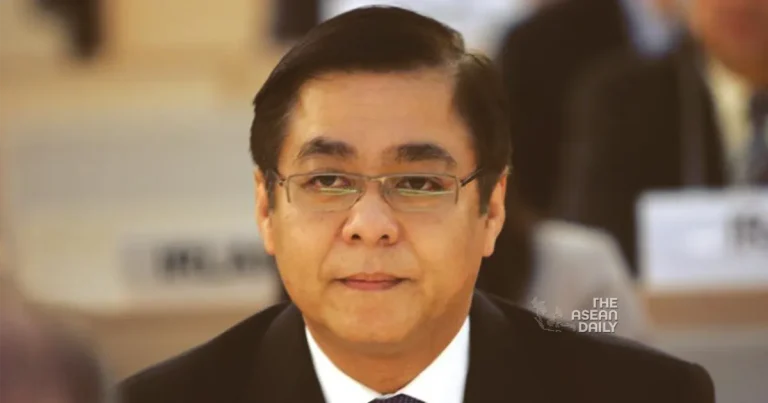6-2-2024 (BANGKOK) Thailand is ramping up efforts to tackle the Myanmar crisis and is expanding engagement with relevant stakeholders, a senior official informed Nikkei Asia, highlighting meetings with various parties including regional officials, ethnic resistance groups, and countries like China, India, and the U.S.
Thai Vice Minister of Foreign Affairs Sihasak Phuangketkeow revealed in an interview that Thailand is accelerating plans to dispatch humanitarian aid to displaced individuals within Myanmar and to establish a center on the Thai-Myanmar border to oversee assistance, initially focusing on food aid and medical supplies, with the support of the Red Cross Society of Myanmar and Thailand.
The initiative involves a monitoring role for the ASEAN Coordinating Centre for Humanitarian Assistance on Disaster Management (AHA Centre), signifying ASEAN’s involvement and endorsement.
While approximately 2.6 million people are displaced within Myanmar, the cross-border humanitarian effort aims to reach an initial 20,000 individuals. Sihasak emphasized the significance of this initial step.
“We anticipate that deliveries could commence by the end of February,” Sihasak remarked.
Ahead of his visit to the Thai-Myanmar border with Foreign Minister Parnpree Bahiddha-Nukara, Sihasak’s comments come amidst a flurry of regional diplomatic activities. These include visits to Bangkok by Chinese Foreign Minister Wang Yi and U.S. national security adviser Jake Sullivan, primarily for bilateral discussions and individual talks with Thailand, where Myanmar featured prominently.
Thailand’s Myanmar initiatives and the ongoing crisis were also discussed during the China-U.S. bilateral talks, according to a senior U.S. administration official.
“We anticipate further discussions in the coming weeks and months to focus on promoting a return to democratic transition in Burma,” the official stated.
Thailand’s cross-border aid proposal received approval from ASEAN foreign ministers at their retreat in Luang Prabang, Laos, and earlier from Myanmar’s State Administration Council (SAC), the military regime. The ministers reaffirmed their commitment to ASEAN’s Five-Point Consensus, endorsed by all member states, including Myanmar, in April 2021.
Sihasak acknowledged criticism regarding Thailand’s engagement with the military regime, emphasizing that the humanitarian initiative aims to benefit the people, urging against politicization.
The timing of Thailand’s initiative is attributed to the new government of Prime Minister Srettha Thavisin, which has expressed concern over Myanmar’s deteriorating situation and has moved away from the fragmented approach of the previous administration.
Sihasak underscored the importance of Thailand’s role in addressing the Myanmar crisis, emphasizing the need for cooperation and dialogue among stakeholders, including the military regime and ethnic resistance groups.
The intensifying conflict within Myanmar has raised concerns about further fragmentation, with Thailand advocating for a peaceful and unified Myanmar.
Sihasak disclosed his shuttle diplomacy efforts to Brussels, India, Laos, and forthcoming visits to Washington and New York to discuss the Myanmar crisis, expressing willingness to engage with key ethnic resistance organizations and the National Unity Government of Myanmar.
Thailand is open to a pledging conference proposed by the ASEAN secretary-general and potential engagement with Myanmar’s ambassador to the U.N. in New York.
The NUG, along with ethnic resistance groups, offered talks with Myanmar’s military leadership to end military rule, contingent on the acceptance of political objectives.
Win Myat Aye, NUG’s minister for humanitarian affairs, pledged cooperation with Thailand to assist displaced Myanmar individuals along the Thai border, emphasizing efforts to strengthen diplomatic relations with Thailand.




